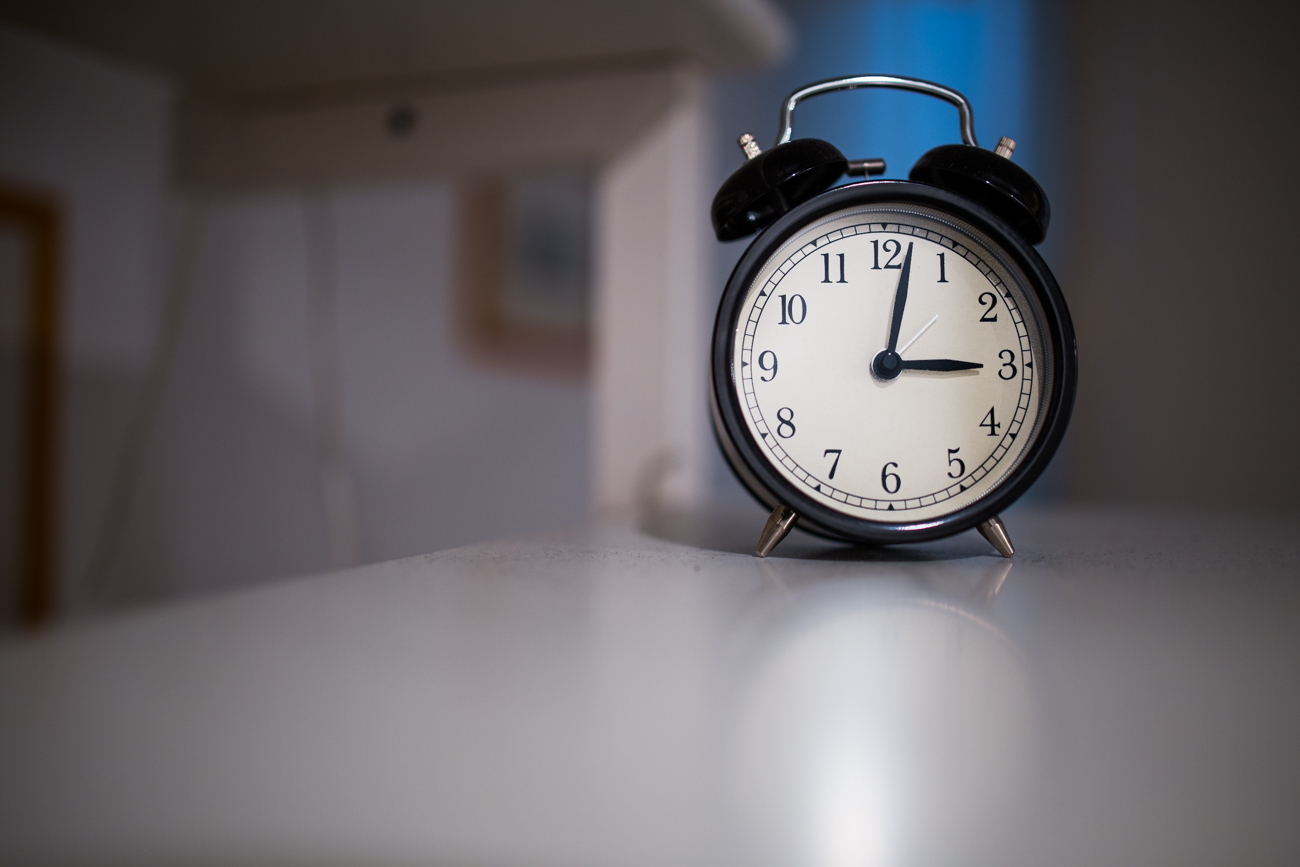
It’s pitch black out when your alarm clock goes off. In the midst of the noise, you can think of nothing better than hitting that snooze button for a few extra minutes of sweet sleep. But despite the allure of snoozing, research shows that it might actually be harmful to your overall health. Read on for an in-depth look at our users’ snoozing habits.
How many of us hit the snooze button?
In a survey of almost 20,000 people, we found that about half of all respondents resist the snooze button, or don’t use an alarm at all, while the remaining 50% do.
Additionally, 35% snooze just once or twice, while the remaining 15% snooze 3 or more times. So while hitting “snooze” might not be as widespread of a habit as we thought, quite a few people hit that button multiple times each morning.
Who snoozes the most?
Snoozing seems to correlate with age: the younger we are, the more we hit the snooze button.
In fact, while 26% of respondents aged 20-29 snooze at least 3 times, less than 10% of respondents in each age group over 50 do the same. Additionally, while only about 30% of users aged 20-29 rarely snooze, 54% of users aged 50-59 regularly resist the snooze button.
More activity = less snoozing
Activity also correlates with the propensity to snooze. In fact, among the most active respondents — those with an average daily step count of 12-16,000 — 49% rarely snooze.
On the other hand, among respondents who log 4,000 steps or fewer daily, only 39% rarely snooze, and three times as many people report snoozing so much that it takes them about an hour to get up.
Why do we snooze?
There are likely many varying explanations as to why people snooze, but one might be that those who make use of the snooze button simply sleep less, so they have a harder time waking up in the mornings. However, when we cross-checked our users’ sleep data, we found that respondents who hit the snooze button actually sleep just as much as respondents who get up immediately, about 7 hours and 20 minutes on average.
However, compared to respondents who rarely snooze, respondents who do snooze logged about 6 minutes less of deep sleep, went to bed past midnight, and got up about 33 minutes later. This shifted sleep cycle may play a role in sleep quality, as research shows that sleep cycles that don’t align with sunlight hours, and thus our circadian rhythms, may be harmful to us.
Does more snoozing = more fatigue?
We also found a correlation between the number of times people snooze and how many of them report feeling tired.
While it’s hard to know which came first—the fatigue or the snoozing—we can see that the more times people report hitting the snooze button, the more likely they are to report feeling tired.
Snooze button facts
Let’s review what we’ve learned:
While only about half of our users report using the snooze button, younger people are more likely to hit snooze than older people.
More active people are less likely to hit the snooze button, yet snoozers are the ones more likely to report fatigue. Additionally, while snoozers and non-snoozers log the same amount of sleep, people who hit snooze log less deep sleep and display a later sleep & wake time.
So if hitting the snooze button is part of your sacred morning ritual, and you generally feel well-rested throughout the day, then by all means continue. But if you find yourself feeling groggy or tired, going to bed later than you want, or missing out on your gym session thanks to the allure of the snooze button, you might want to try getting up when that first alarm goes off.
Study Methodology
This study was conducted by Withings based on anonymous answers from 19,952 respondents to a Withings sleep survey combined with data from the Withings devices of the respondents. Withings guarantees the confidentiality of personal data and protects the privacy of all its users. Therefore, all data used in this study is anonymized and aggregated.

This post is part of our Sleep Month series.


